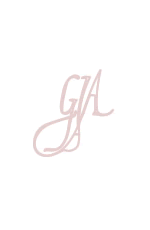- |
User Links
Teach Me, My God and King

Teach me, my God and King, In all things Thee to see
Author: George Herbert (1633)Published in 269 hymnals
Printable scores: PDF, MusicXMLAudio files: MIDI
Representative Text
1 Teach me, my God and King,
in all things Thee to see,
and what I do in anything,
to do it as for Thee.
2 To scorn the senses’ sway,
while still to Thee I tend;
in all I do be Thou the Way,
in all be Thou the End.
3 All may of Thee partake;
nothing so small can be,
but draws, when acted for Thy sake,
greatness and worth from Thee.
4 If done t'obey Thy laws,
e’en servile labors shine;
hallowed is toil, if this the cause,
the meanest work divine.
Source: Psalms and Hymns to the Living God #359
Author: George Herbert
 Herbert, George, M.A., the fifth son of Richard Herbert and Magdalen, the daughter of Sir Richard Newport, was born at his father's seat, Montgomery Castle, April 3, 1593. He was educated at Westminster School, and at Trinity College, Cambridge, graduating B.A. in 1611. On March 15, 1615, he became Major Fellow of the College, M.A. the same year, and in 1619 Orator for the University. Favoured by James I., intimate with Lord Bacon, Bishop Andrewes, and other men of influence, and encouraged in other ways, his hopes of Court preferment were somewhat bright until they were dispelled by the deaths of the Duke of Richmond, the Marquis of Hamilton, and then of King James himself. Retiring into Kent, he formed the resolution of taking Holy Orders… Go to person page >
Herbert, George, M.A., the fifth son of Richard Herbert and Magdalen, the daughter of Sir Richard Newport, was born at his father's seat, Montgomery Castle, April 3, 1593. He was educated at Westminster School, and at Trinity College, Cambridge, graduating B.A. in 1611. On March 15, 1615, he became Major Fellow of the College, M.A. the same year, and in 1619 Orator for the University. Favoured by James I., intimate with Lord Bacon, Bishop Andrewes, and other men of influence, and encouraged in other ways, his hopes of Court preferment were somewhat bright until they were dispelled by the deaths of the Duke of Richmond, the Marquis of Hamilton, and then of King James himself. Retiring into Kent, he formed the resolution of taking Holy Orders… Go to person page >Text Information
| First Line: | Teach me, my God and King, In all things Thee to see |
| Title: | Teach Me, My God and King |
| Author: | George Herbert (1633) |
| Meter: | 6.6.8.6 |
| Language: | English |
| Notes: | French translation: "Enseignemoi, Seigneur" by Flossette Du Pasquier; German translation: "Lehr mich, mein Gott and Herr" by Wilhelm Horkel |
| Copyright: | Public Domain |
English
- 50 Hymns and Tunes: arranged for the Girl's High School, Boston: and adapted to school and home use #8
- A Book of Hymns for Public and Private Devotion (15th ed.) #302
- A Book of Hymns for Public and Private Devotion. (10th ed.) #302
- A Collection of Hymns and a Liturgy: for the use of Evangelical Lutheran Churches, to which are added prayers for families and individuals (New and Enl. Stereotype Ed.) #637
- A Collection of Hymns for Public, Social and Domestic Worship #d785
- A Collection of Hymns for Public, Social, and Domestic Worship #624
- A Collection of Hymns for Public, Social, and Domestic Worship #d786
- A Collection of Hymns for the Use of the Protestant Church of the United Brethren. (New and Rev. ed.) #880
- A Collection of Hymns for the Use of the Protestant Church of the United Brethren. Rev. ed. #d664
- A Collection of Hymns, for the Use of the Protestant Church of the United Brethren. New and Revised ed. #1074 10 shown out of 186
French
German
Notes
Teach me, my God and King. G. Herbert. [Duty.] This hymn is found in modern hymnbooks in two forms, the first as written by Herbert, and the second as altered by J. Wesley. Herbert's text was printed in his Temple, 1633, p. 178, under the title "The Elixir"; and J. Wesley's in his Collection of Psalms & Hymns, 1738.
In modern hymnbooks, as in Mercer and others, J. Wesley's text, with the omission of the last stanza, is usually followed. We must note that in Herbert's text the line (a) reads in the 7th ed. "Which with this tincture for Thy sake," and that in later editions of J. Wesley's Collection of Psalms & Hymns the following changes are also made :—
(b) "Nothing so small can be."
(c) "Hallow'd is toil, if this the cause."
(d) "The elixir this the stone."
This rugged, but beautiful hymn is we! adapted in its original form for private use.
-- Excerpts from John Julian, Dictionary of Hymnology (1907)
Access an additional article on the Canterbury Dictionary of Hymnology:


 My Starred Hymns
My Starred Hymns




